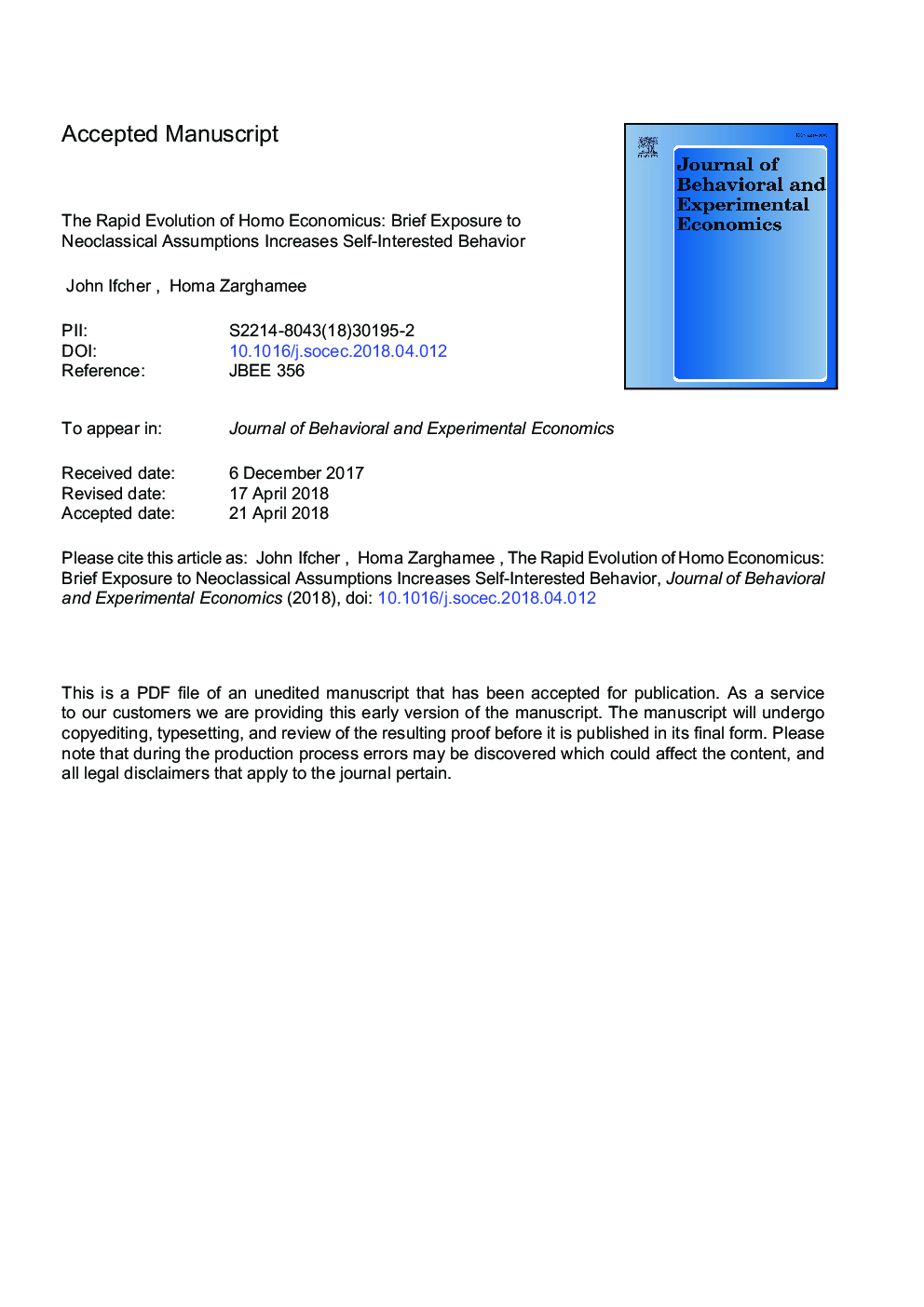| کد مقاله | کد نشریه | سال انتشار | مقاله انگلیسی | نسخه تمام متن |
|---|---|---|---|---|
| 7241918 | 1471539 | 2018 | 41 صفحه PDF | دانلود رایگان |
عنوان انگلیسی مقاله ISI
The rapid evolution of homo economicus: Brief exposure to neoclassical assumptions increases self-interested behavior
ترجمه فارسی عنوان
تکامل سریع همو اقتصادسنجی: قرار گرفتن در معرض پیش فرض های نئوکلاسیک، رفتار خودخواهانه را افزایش می دهد
دانلود مقاله + سفارش ترجمه
دانلود مقاله ISI انگلیسی
رایگان برای ایرانیان
کلمات کلیدی
موضوعات مرتبط
علوم انسانی و اجتماعی
اقتصاد، اقتصادسنجی و امور مالی
اقتصاد و اقتصادسنجی
چکیده انگلیسی
Economics students have been shown to exhibit more selfishness than other students. Because the literature identifies the impact of long-term exposure to economics instruction (e.g., taking a course), it cannot isolate the specific course content responsible; nor can selection, peer effects, or other confounds be properly controlled for. In a laboratory experiment, we use a within- and across-subject design to identify the impact of brief, randomly-assigned economics lessons on behavior in the ultimatum game (UG), dictator game (DG), prisoner's dilemma (PD), and public-goods game (PGG). We find that a brief lesson that includes the assumptions of self-interest and strategic considerations moves behavior toward traditional economic rationality in UG, PD, and DG. Despite entering the study with higher levels of selfishness than others, subjects with prior exposure to economics instruction have similar training effects. We show that the lesson reduces efficiency and increases inequity in the UG. The results demonstrate that even brief exposure to commonplace neoclassical economics assumptions measurably moves behavior toward self-interest.
ناشر
Database: Elsevier - ScienceDirect (ساینس دایرکت)
Journal: Journal of Behavioral and Experimental Economics - Volume 75, August 2018, Pages 55-65
Journal: Journal of Behavioral and Experimental Economics - Volume 75, August 2018, Pages 55-65
نویسندگان
John Ifcher, Homa Zarghamee,
